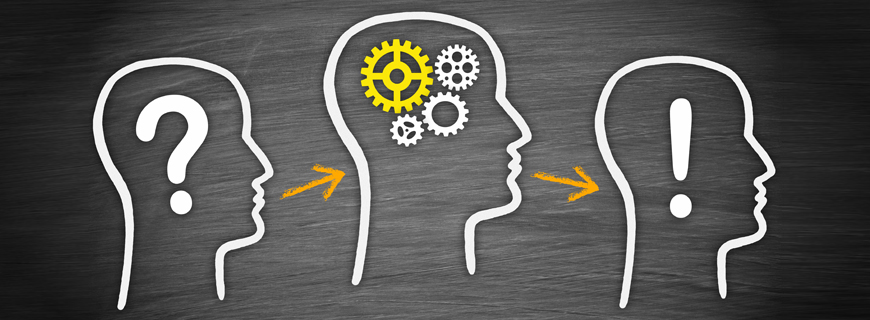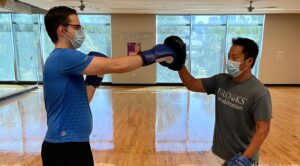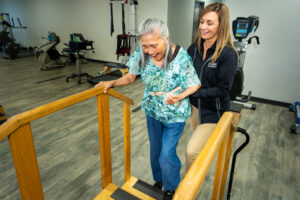How to Break Down Barriers of Aphasia

Back to physical health resource hub
by Floris F. Singletary, M.S., CCC-SLP
Language is an essential part of everyday life. It provides powerful cues that we use to gauge things like intelligence. But, what happens when the part of the brain that deals with language gets damaged?
When someone sustains a stroke, brain injury or other illness that affects this area, it can make normal conversation very hard. This condition, which is relatively common after a brain trauma, is called aphasia.
Aphasia can conceal a person’s intelligence, but it doesn’t actually effect how smart they are. Even though it can create a barrier to communication, we can still access language in persons with aphasia.
Similar to people with physical disabilities, making modifications to the environment can make a big difference. We modify public spaces with ramps so that wheelchair users can easily gain access. For many with aphasia, simple modifications to the language environment can greatly improve an individual’s ability to “access” language and communicate effectively.
Below are some techniques to break through the barrier and improve conversation for a person with aphasia:
- Use short simple sentences and an expressive voice
- Speak with normal loudness and an adult tone
- Use gestures that are easily understood
- Always have a pad and pen
- Write key word/main ideas in bold print
- Encourage your partner to write clues
- Use pictures and focus on one at a time
- Provide access to a picture library or picture dictionary
- Ask yes/no questions and make sure that the person has a way to respond
- Give them TIME to respond
- Verify that you have understood by repeating, expanding or summarizing the message
- Let them know: “I KNOW YOU KNOW”!!
Brooks Rehabilitation will be offering a Community Aphasia Program and an Intensive Comprehensive Aphasia Program in 2016.


